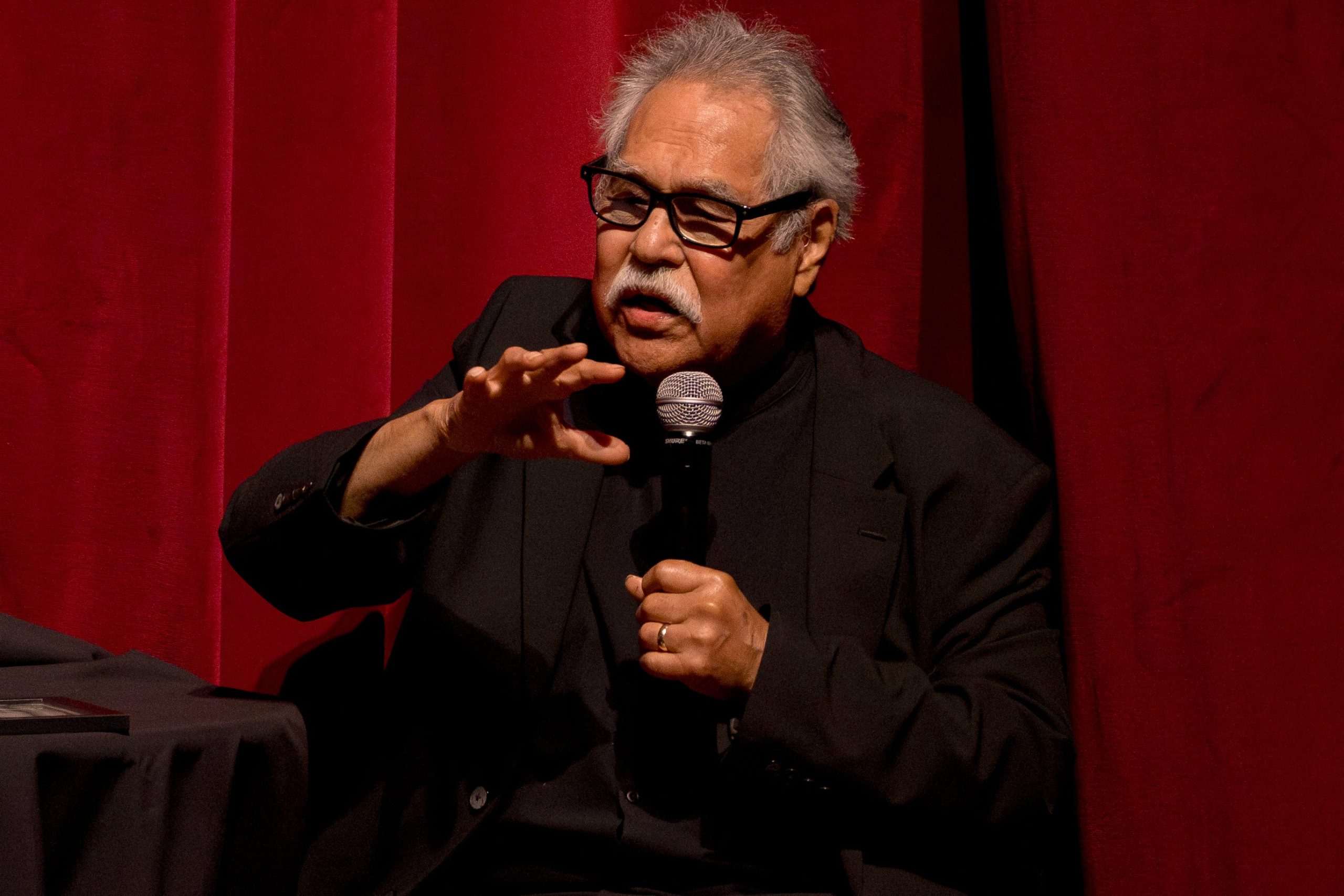A Legacy of Storytelling and Cultural Connection
Luis Valdez, a revered figure in Chicano cinema, recently made an appearance in El Paso to share his experiences and insights about his work as the writer and director of “La Bamba.” The event took place on Friday, July 18, at the Plaza Theatre, where Valdez spoke with Stephanie Valle, host of the Plaza Classic Podcast. He described the venue as a “glorious temple of art and culture,” emphasizing its significance in the community.
Valdez highlighted the deep historical roots of El Paso, noting that it has been a crossroads for human migration for thousands of years. He mentioned the mound builders from the East Coast who passed through the area, reflecting on the connection between different cultures and the importance of recognizing these shared histories. For Valdez, being in El Paso is not just a visit but a celebration of cultural heritage and identity.
The Plaza Classic Film Festival, now in its 18th year, welcomed Valdez as its first guest this year. Organized by the El Paso Community Foundation, the festival runs through July 27 and features 98 films, including documentaries and works by local filmmakers. This event serves as a platform for showcasing diverse stories and voices within the community.
Valdez’s journey into storytelling began during his time as a freshman at San José State University in California, where he was studying math and physics. His life changed when Ritchie Valens, a musician known for his rock ‘n’ roll version of the Mexican folk song “La Bamba,” died in a plane crash in 1959. At the time, Valdez thought Valens’ name was Italian, but he soon discovered that Valens was actually Richard Steven Valenzuela, a Chicano from Los Angeles.
This revelation inspired Valdez to switch his major to English with an emphasis on playwriting. He felt a strong connection to Valens’ story and saw it as an opportunity to represent Chicanos in the entertainment industry. It took him over 30 years to finally bring the story of “La Bamba” to the screen.
After the success of his play “Zoot Suit,” which became the first Chicano play to reach Broadway in 1979, Valdez sought new stories to tell. He recalled hearing mariachis playing “La Bamba” on the streets of New York, which inspired him to pursue the film adaptation. His brother took on the task of tracking down Valens’ family and securing the rights to tell their story.
Valdez shared the emotional process of connecting with Valens’ family, particularly his mother, Connie, who was struggling with heart issues. He believed her presence on set helped bring her back to life and played a crucial role in Valens’ legacy. She attended the film’s premiere and spent time with the cast, showing her support for the project.
The film also included a poignant airport scene featuring Lou Diamond Phillips, which was emotionally challenging for Valens’ family, especially his young sisters. Valdez reflected on the impact of the scene and how it resonated with the audience, highlighting the sensitivity of the story.
Finding the right actor to portray Ritchie Valens was a significant challenge. Valdez met Lou Diamond Phillips in Dallas and was struck by his natural talent and heart. Despite initial concerns about his ethnicity, Valdez embraced the idea, noting that Filipinos are often considered the Hispanics of Asia. This moment brought laughter and a sense of inclusivity to the audience.
Valdez made a second appearance on Saturday, July 19, before the screening of “Zoot Suit,” further engaging with the community and sharing his passion for storytelling. His presence at the festival underscored the importance of preserving and celebrating cultural narratives through film.







